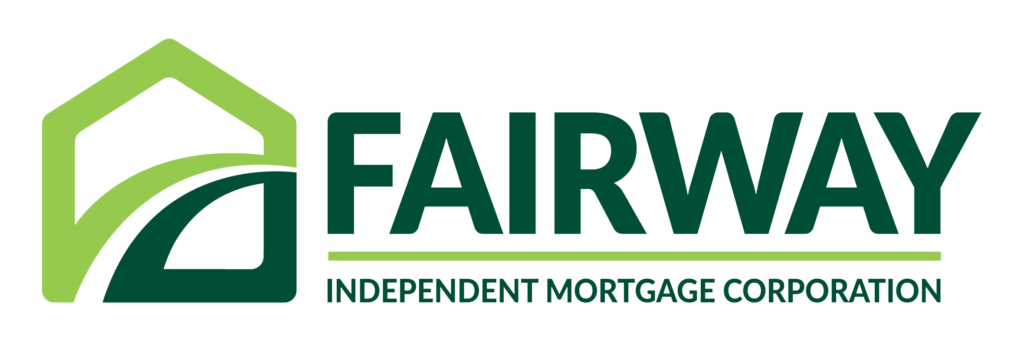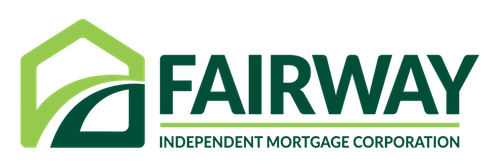5 Big Reasons to Reverse Your Thinking on Reverse Mortgage Loans

Let’s face it, no loan product in the mortgage industry is as misunderstood as the reverse mortgage loan, aka the Home Equity Conversion Mortgage (HECM). Myths and outdated misconceptions around reverse mortgages are still being parroted, like “The bank takes your house,” “Don’t do it unless you’re in a desperate situation,” and “Beware. It’s a scam.”
Luckily, we’re all about the facts here at Fairway. No room for rumors, myths, or misconceptions.
And if you’re curious what you may qualify for, you can use our free reverse mortgage calculator!
Reverse Mortgage Facts
A HECM reverse mortgage is a home-secured loan that allows homeowners 62 and older to convert a percentage of their home equity into cash, fixed monthly advances, or a line of credit. The borrower can defer repayment of the loan balance so long as they live in the home and pay the property charges, like taxes and insurance. The loan balance does not become due and payable until a maturity event occurs — typically the loan matures when all borrowers permanently move out of the home or the last surviving borrower passes away.
Reverse mortgages are non-recourse loans, which means the reverse mortgage borrower(s), or their estate, will never owe more than the loan balance or the value of the property, whichever is less; and no assets other than the home has to be used to repay the debt*.
The HECM loan is the most popular reverse mortgage in the nation and the only one insured by the Federal Housing Administration (FHA). While other investor-owned reverse mortgage loans are available, for simplicity, this article will focus solely on the HECM reverse mortgage.
Basic reverse mortgage requirements include:
- Borrower(s) must be 62 years or older
- Must own the property outright or paid-down a considerable amount
- Must live in home as the primary residence
- Must not be delinquent on any federal debt
- Property must be a single-family home, a 2- to 4-unit dwelling, or FHA-approved condo
Like other things, there are pros and cons to reverse mortgages and we encourage you to research and self-educate.
Now that we’ve covered the basics, let’s just jump into some reasons why reverse mortgages can be a real game changer for you and your retirement.
1) Improve Cash Flow and Quality of Life
There is no shortage of obstacles in retirement that can weaken retirement cash flow, such as surging inflation, volatile markets, and one’s future health care needs. A reverse mortgage can help you to leverage your home’s equity to increase your retirement cash flow, which, in turn, can help you to live the retirement you’ve always envisioned. It can also give you peace of mind knowing you have more financial flexibility to buffer unforeseen expenses down the road.
Maybe your goal is simply to eliminate the burden of that fixed monthly mortgage payment on that traditional mortgage that you’re still years away from fully paying off. Or maybe you want to free up cash flow to be able to visit out-of-state family members more often and spoil the grandkids. Or maybe you want to use part of the loan proceeds to pay for a universal design remodel of your kitchen and bath that will make your home more appealing, comfortable, and safe to live in as you age. A reverse mortgage could be the solution. You can choose how you use your funds to enjoy the life you want to live.
2) Enhance a Sound Financial Strategy
A common misconception about reverse mortgages is that they are simply a last-resort option for desperate homeowners. A Hail Mary attempt to gather some funds.
The reality?
While a reverse mortgage can help homeowners to address an urgent need, like homeowners who can no longer afford their required monthly mortgage payment, this use case now represents a small (and diminishing) percentage of the overall reasons that borrowers take out a reverse mortgage. Now more than ever, borrowers are working with advisors to use reverse mortgages in a financial planning sense — not only because it offers the borrower access to emergency funds, but also because of the long-term financial planning opportunities its growing line of credit presents. The unused portion of the line of credit grows at the same compounding rate as the loan balance, meaning the borrower will have greater borrowing capacity in the future, if needed.
The line of credit is also secure — it cannot be capped, frozen, or reduced because of market conditions. Many people are establishing the reverse mortgage line of credit as early as possible, prior to any urgent cash flow needs. There may be a future need or a strategy to maximize cash flow, reduce taxes, and minimize risk. For example, you may want to coordinate between spending from your investments and your reverse mortgage to potentially protect your investment portfolio better from market volatility.
3) Prepare for a Lengthy Retirement Period
Our life expectancy is growing, and our health-care costs are increasing. While retirement used to last 10 years — it now lasts from 20-30+ years. Well, what do these numbers mean to you? They mean as a retiree, there’s more of a chance that you could outlive your retirement savings. Think of your home as a pension or annuity you already own — tapping your equity with a reverse mortgage can be a savvy financial move to prolong the life of your savings and help you to better afford long-term care costs.
When you view your home equity as a nest egg (like a savings account) that you’ve worked hard to build, reverse mortgages suddenly seem like a viable option for keeping up with things later in life like health-care bills and the rising cost of retirement.
4) Use Your Home to Stay at Home & Leave a Legacy
One of the biggest myths surrounding reverse mortgages is that the bank will own your home after you get a reverse mortgage. Luckily for you, that’s just an urban legend. In fact, it is quite the opposite. With a reverse mortgage, you retain title to your home throughout the entirety of the loan. As with any mortgage, you must meet the terms of the loan. Also, thanks to recently enhanced consumer protections, an eligible non-borrowing spouse may be able to continue to live in the home (deferral of the due and payable status) after the borrower’s passing or relocation.
Another popular misconception is that getting a reverse mortgage means your family can no longer inherit your home. This is just not true. When the reverse loan becomes due and payable and the home is left to heirs, the heirs will several options: 1) Sell the home and keep any profit from the sale, 2) Walk away from the home by signing a deed-in-lieu of foreclosure, 3) Purchase the home for 95 percent of the property’s appraised value, or 4) Pay off the reverse mortgage balance and keep the home.
Even if there is no equity left in the home, you still may be able to pass on greater legacy to your heirs than if you hadn’t taken out a reverse mortgage. Remember, you could have significantly increased cash flow throughout your retirement, which could help you to preserve your productive assets, like your savings or investments. The net result could be greater overall net wealth**.
5) No HELOC, No Problem
When it comes to tapping equity from your home, your first thought may be to get a Home Equity Line of Credit, or HELOC, from your local bank. However, a reverse mortgage line of credit offers some distinct advantages over a HELOC that can make it the better option for older-adult homeowners. For instance:
- Reverse mortgage credit lines have no monthly mortgage repayment requirements (must pay the property charges, like taxes and insurance). Traditional credit lines require at least interest payments toward the loan balance.
- A reverse mortgage line of credit tends to be easier for older-adult homeowners to qualify for (less restrictive credit and income requirements) compared to a HELOC.
- A reverse mortgage line of credit doesn’t have a tight, pre-set window of time for you to be able to draw funds from. Traditional credit lines have term limits, generally 10 or 15 years. Then they amortize or have balloon payments.
- A reverse mortgage line of cannot be frozen, reduced, or canceled if the loan is in good standing. Many traditional credit lines are frozen, and then cancelled, during market downturns.
- A reverse mortgage line of credit has a built-in growth feature (applies to unused funds) which increases your borrowing capacity as you age. HELOCs offer no such benefit.
Let’s Start a Conversation
If you are interested in learning more about reverse mortgage loans and if one might be right for you or a loved one, Fairway Independent Mortgage Corporation can help. Connect with us today.
*There are some circumstances that will cause the loan to mature and the balance to become due and payable. Borrower is still responsible for paying property taxes and insurance and maintaining the home. Credit subject to age, property and some limited debt qualifications. Program rates, fees, terms and conditions are not available in all states and subject to change.
**This advertisement does not constitute financial or tax advice. Please consult a financial or tax advisor regarding your specific situation.
Copyright©2022 Fairway Independent Mortgage Corporation (“Fairway”) NMLS#2289. 4750 S. Biltmore Lane, Madison, WI 53718, 1-866-912-4800. All rights reserved. Fairway is not affiliated with any government agencies. These materials are not from HUD or FHA and were not approved by HUD or a government agency. Reverse mortgage borrowers are required to obtain an eligibility certificate by receiving counseling sessions with a HUD-approved agency. The youngest borrower must be at least 62 years old. Monthly reverse mortgage advances may affect eligibility for some other programs. This is not an offer to enter into an agreement. Not all customers will qualify. Information, rates and programs are subject to change without notice. All products are subject to credit and property approval. Other restrictions and limitations may apply. Equal Housing.

